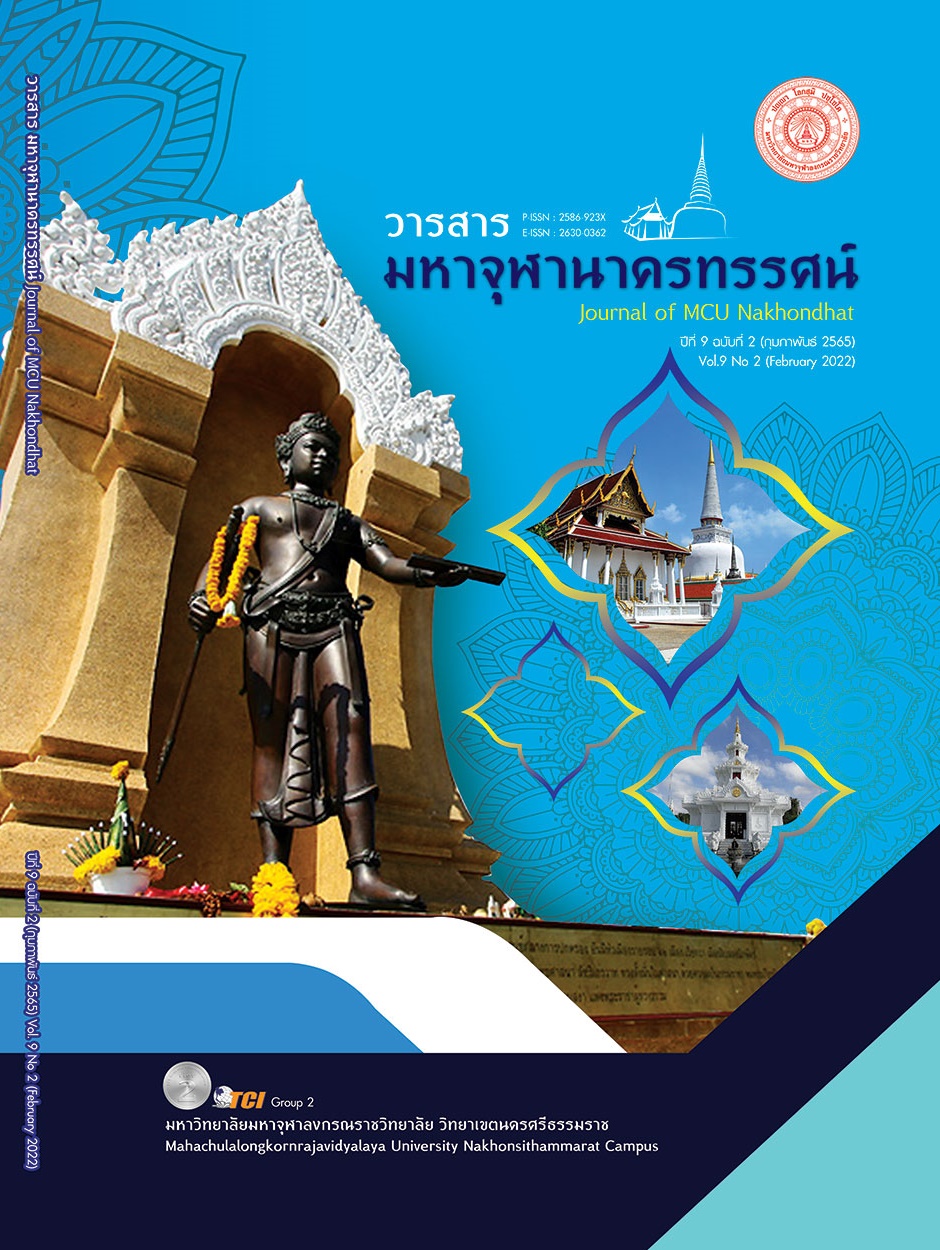THE SUCCESS IN OPERATION OF THE SENIOR CITIZENS COUNCIL OF THAILAND
Main Article Content
Abstract
The article has the objective to study the level of success in the operation of the Senior Citizens Council of Thailand and to study the factors affecting the success of the Senior Citizens Council of Thailand; and to study for improving development the Senior Citizens Council of Thailand. This research is a mixed method research. Quantitative research, the sample group was 273 elderly clubs in Thailand. The tool used as a questionnaire. Data were analyzed by frequency, percentage, mean, standard deviation and multiple regression analysis. Qualitative research, the key informants were representatives of the elderly clubs who were members of the Senior Citizens Council of Thailand, totaling 10 clubs. The tool was Semi-structured interview form. Analyze the data by interpretation.
The results showed that the level of success in the Senior Citizens Council of Thailand at a high level. Internal and external factors affecting the success of policy implementation as a whole were at a high level. Internal variables and outside the control, all 13 factors can explain the dependent variable, namely the implementation of the policy of the Association of the Council of Elders of Thailand, overall 64.1 percent. The prediction equation can be written as follows: Y = 274 + .343 X1 + 421 X2 + 206 X3. The results of the qualitative research found that the Senior Citizens Council of Thailand and the elderly clubs which work as a network with each other which has the Senior Citizens Council of Thailand serves to set rules on the standards of the elderly clubs and carry out various activities related to the elderly clubs in the form of joint thinking, joint planning, joint implementation, follow-up, and reporting.
Article Details

This work is licensed under a Creative Commons Attribution-NonCommercial-NoDerivatives 4.0 International License.
References
กรมอนามัย. (2556). รายงานประจําปีงบประมาณ 2556. กรุงเทพมหานคร: โรงพิมพ์เทพวานิสย์.
ชนาภา ขำสุวรรณ. (2550). การจัดการกิจการชมรมผู้สูงอายุโรงพยาบาลสงขลา อำเภอเมืองสงขลา จังหวัดสงขลา. ใน วิทยานิพนธ์ศิลปศาสตรมหาบัณฑิต สาขาวิชาไทยคดีศึกษา. มหาวิทยาลัยทักษิณ.
บรรลุ ศิริพานิช. (2553). คู่มือผู้สูงอายุฉบับสมบูรณ์. กรุงเทพมหานคร: หมอชาวบ้าน.
ปาจรีย์ ผลประเสริฐและคณะ. (2562). แนวทางการพัฒนาสมรรถนะการบริหารจัดการกลุ่ม ของคณะกรรมการชมรมผู้สูงอายุจังหวัดกำแพงเพชร. วารสารมหาวิทยาลัยศิลปากร, 39(4), 56-77.
ปานหทัย ปานสิทธิ์. (2554). รูปแบบและการดำเนินงานของชมรมผู้สูงอายุในอำเภอปากพะยูน จังหวัดพัทลุง. ใน วิทยานิพนธ์ศึกษาศาสตรมหาบัณฑิต สาขาศึกษาศาสตร์เพื่อพัฒนาชุมชน. มหาวิทยาลัยสงขลานครินทร์.
พีระ พันธุ์งาม. (2553). ปัจจัยเชิงพหุระดับที่มีอิทธิพลต่อประสิทธิผลการบริหารงานชมรมผู้สูงอายุของสถานีอนามัย จังหวัดนครราชสีมา. นครราชสีมา: สำนักวิทยบริการและเทคโนโลยีสารสนเทศ.
วรัญญู อัศวพุทธิ. (2554). แนวทางพัฒนาวิธีการระดมทรัพยากรของชมรมผู้สูงอายุ : กรณีศึกษาชมรมผู้สูงอายุเครือข่ายสหพันธ์ชมรมผู้สูงอายุกรุงเทพมหานคร. ใน วิทยานิพนธ์สังคมสงเคราะห์ศาสตรมหาบัณฑิต สาขาสังคมสงเคราะห์. มหาวิทยาลัยธรรมศาสตร์.
วัชรินทร์ สุทธิศัย. (2555). ปัจจัยที่มีผลต่อความสำเร็จในการนำนโยบายมหาวิทยาลัยราชภัฏไปปฏิบัติ : กรณีศึกษามหาวิทยาลัยราชภัฏกลุ่มภาคตะวันออกเฉียงเหนือ. ใน ดุษฎีนิพนธ์ปรัชญาดุษฎีบัณฑิต สาขาวิชารัฐประศาสนศาสตร์. มหาวิทยาลัยศรีปทุม.
วิกรม รุจยากรกุลและคณะ. (2562). ปัจจัยที่มีความสัมพันธ์ต่อการดำเนินงานของชมรมผู้สูงอายุคุณภาพ จังหวัดนครปฐม. วารสารวิจัยสุขภาพและการพยาบาล (วารสารวิทยาลัยพยาบาลบรมราชชนนี กรุงเทพ), 35(2), 118-128.
วิโรจน์ เซมรัมย์. (2555). การนำนโยบายระบบการบริการการแพทย์ฉุกเฉินไปปฏิบัติ. ใน ดุษฎีนิพนธ์รัฐประศาสนศาสตร์ดุษฎีบัณฑิต สาขาวิชารัฐประศาสนศาสตร์. มหาวิทยาลัยอุบลราชธานี.
ศศิพัฒน์ ยอดเพชร. (2564). บูรณาการระบบการดูแลระยะยาวสำหรับผู้สูงอายุไทย. วารสารระบบบริการปฐมภูมิและเวชศาสตร์ครอบครัว, 27 (6), 22-32.


